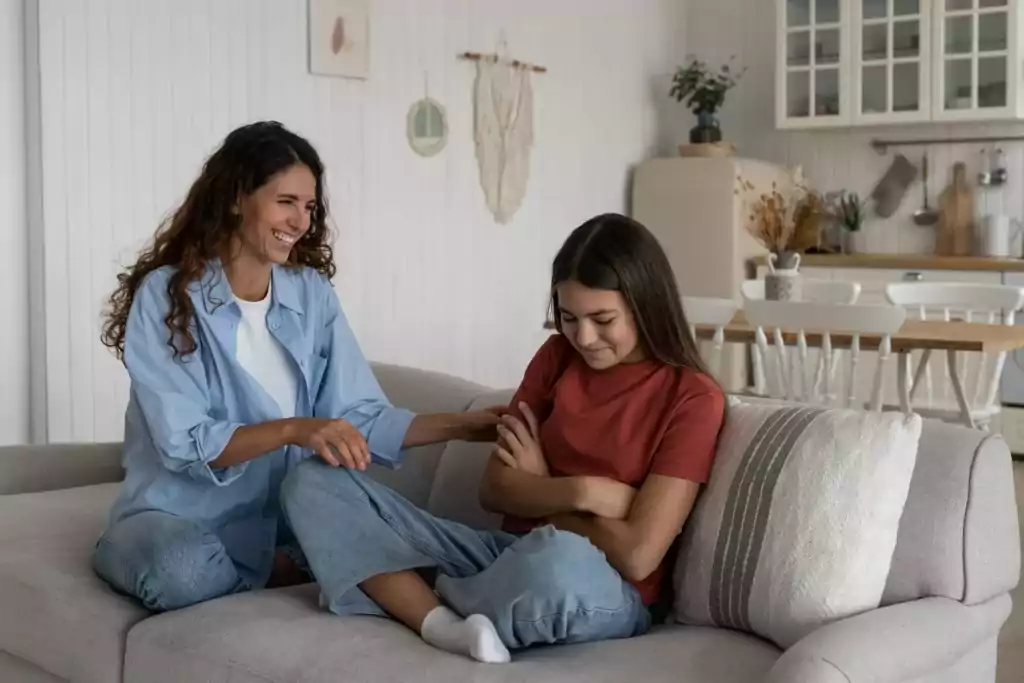The role parents play when talking about food to children
Parents play a vital role in guiding their children toward healthy eating habits that influence their lifelong relationship with food. It’s not just about what we say but also how we model behavior around food. If we consistently impose dietary restrictions or share our body image struggles, our kids absorb these cues. Therefore, as parents, it’s essential to actively promote a positive food relationship for our children as they grow and develop.
Fostering a positive relationship with food with your child from an early age can help prevent any disordered eating patterns that may arise as they grow and develop. In this blog, we’ll cover some tips on how to talk to your kid about food that you can implement as a parent to help you foster a positive food environment with your kids.
Talk about all food neutrally
Assigning labels like ‘good’ or ‘bad’ to foods may seem harmless, but it can instill fear or shame in children. They may believe that “good” food is the only acceptable option because it’s healthier, overlooking the fact that all foods have a place in a balanced diet, each serving a unique purpose in nourishing the body. Additionally, this approach overlooks the idea that food is more than just fuel; it’s about connection, joy, and creating lasting memories. For this reason, it’s important to embrace food neutrality, recognizing that all foods, regardless of their nutritional content, hold equal moral value.
Model and “all foods fit” approach for them
As many people say – kids are like sponges, they absorb everything around them. That’s why it’s essential for us to be positive role models. They pick up on even the smallest actions, whether good or bad, and may adopt them later on. If they see you maintaining balance in your eating habits, they’ll take note. Demonstrating that it’s wonderful to enjoy fruits and veggies, while also enjoying burgers and desserts, is important. Your relationship with food, including the pace and pleasure of eating, also shapes their understanding.
Don’t talk about food in connection to body size
As parents, it’s crucial to be mindful of how we discuss specific foods, particularly when attaching negative connotations related to body or weight. Phrases like “eating certain foods will make you fat or skinny” can be detrimental to a child’s development, especially as they approach their teenage years. This is also reinforcing “skinny” as ideal and “fat” as something negative. We want to increase understanding that all bodies are unique and there is no right or wrong way for a body to be. As mentioned earlier, all foods should be viewed neutrally, as they all contribute to a balanced diet. Additionally, it’s important to recognize that children undergo constant growth and changes in their bodies. Encouraging positive relationships with food and promoting joyful movement will support them in being their healthiest selves, regardless of their body shape or size.
Remove discussions of “diets” or “trends” from the household
We often hear about new diets or trends online, and kids pick up on these messages too. We want to make sure as parents we avoid diet talk and we set boundaries with family members and friends to not discuss diets around your children. It’s important, especially around children, to talk positively about food and avoid discussions that involve counting calories or restricting food.
Be body-positive!
This might be tough, especially on days when we feel a bit down about our bodies. But openly expressing negativity about our bodies or criticizing others’ bodies can convey to kids that feeling insecure is normal. Let’s strive to use positive language, recognizing that everyone is unique, and all bodies are beautiful. Encouraging kids to see bodies as something to celebrate and appreciate is the key! If being positive about your own body feels difficult, body neutrality is also helpful for a child to see. We can appreciate our body in a more neutral way by acknowledging and appreciating what our body does for us. “I appreciate how my arms let me give and receive hugs when I need them.” “I have a stomach that keeps my body nourished and energized for my day.”



